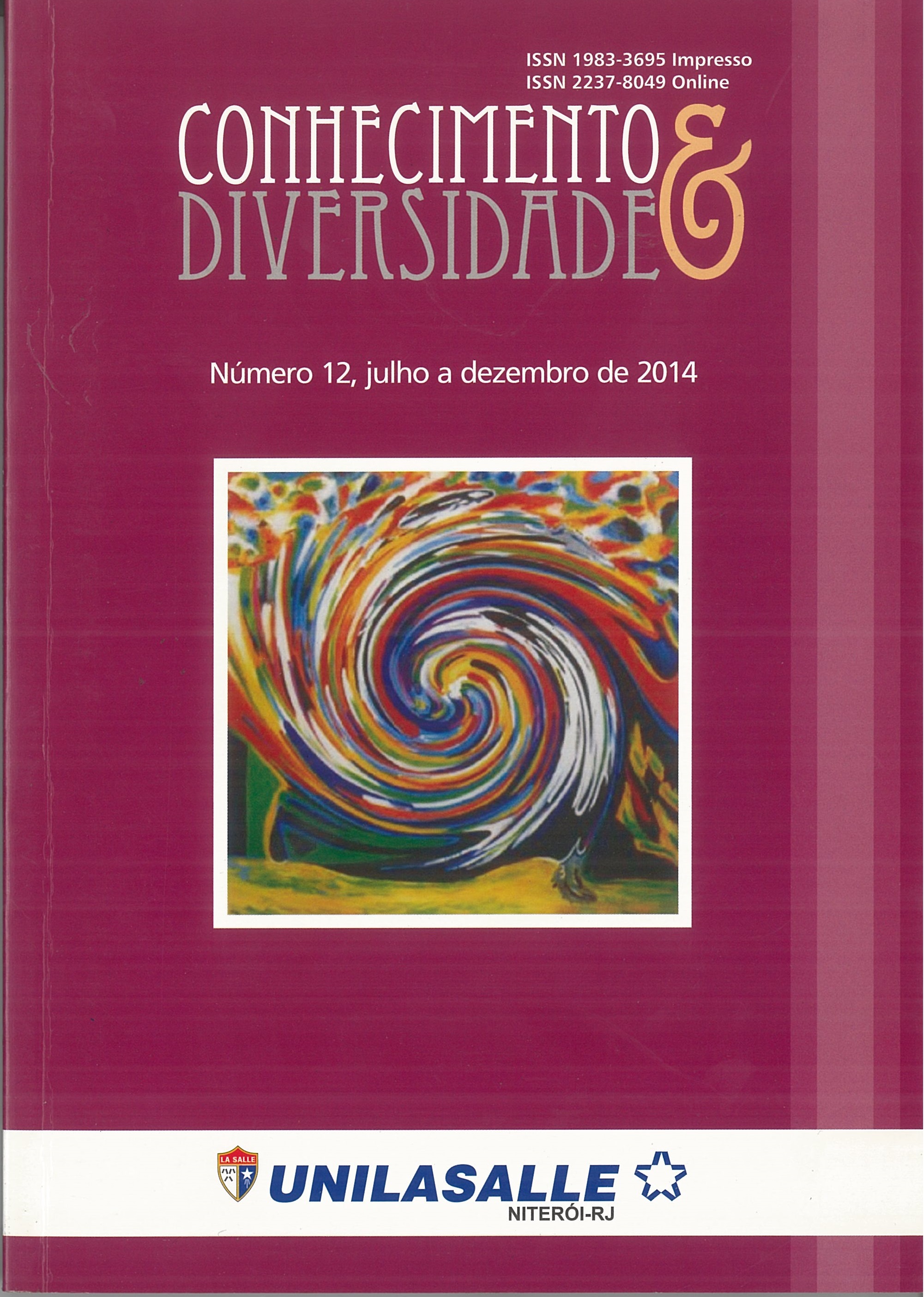Hermenêutica e Ciência: Hans-Georg Gadamer e Thomas Kuhn
DOI:
https://doi.org/10.18316/1604Palavras-chave:
Hermenêutica, Hans-Georg Gadamer, Thomas Kuhn, Filosofia da Ciência, Science StudiesResumo
É possível ouvir Immanuel Kant dizer que se deve ter coragem de servir-se do próprio entendimento na labuta científica; também é possível ouvir posturas científicas influenciadas por este mesmo leitmotiv, que têm como princípio apenas o que pode ser provado, afirmar que nenhum conhecimento será aceito se não se encaixar nas novas normas de cientificidade. Ambas as posturas são, como se percebe, movimentos de resistência ao conhecimento recebido do passado, tido pelos representantes do Aufklärung como desvios que configuram um tipo de conhecimento acrítico. Entendemos que a respeito desta questão, Hans-Georg Gadamer e Thomas Kuhn têm algo interessante a dizer. Empreendemos, então, uma pesquisa tentando compreender se há alguma aproximação entre eles ou se ambos acabam por se mover em direções distintas.Palavras-chave: Hermenêutica. Hans-Georg Gadamer. Thomas Kuhn. Filosofia da Ciência. Science Studies.
Hermeneutics and science: Hans-Georg Gadamer and Thomas Kuhn
Abstract
You can listen to Immanuel Kant say that one must have the courage to serve his own understanding of the scientific labors; you can listen also scientific postures influenced by this same "leitmotiv" claim that no knowledge will be accepted if it does not fit the new standards of scientificity. Both positions are movements of resistance to received knowledge from the past, taken by representatives of the Aufklärung as deviations that constitute a kind of uncritical knowledge. We understand that on this issue Hans-Georg Gadamer and Thomas Kuhn have something interesting to say. Then we undertook a research trying to understand if there is some approximation between them or if they both end up moving in different directions.
Keywords: Hermeneutics. Hans-Georg Gadamer. Thomas Kuhn. Philosophy of Science. Science Studies.
Referências
ARISTÓTELES. Primeiros analíticos. The Complete works of Aristo-tle. Vol. I. Tradução J. L. Ackrill. Princeton: Princeton, 1984.
______. Refutações sofísticas. The Complete Works of Aristotle, Vol. I. Tradução J. L. Ackrill. Princeton, 1984.
______. Metafísica. Madrid: Ed. Gredos, 1990.
______. Tópicos. The Complete Works of Aristotle, Vol. I. Tradução J. L. Ackrill. Frankfurt: Minerva, 1967.
BERTI, Enrico. As razões de Aristóteles. São Paulo: Ed. Loyola, 1998.
BLACKWOOD, Oswald H. et al. Física na escola secundária. São Paulo: Mec, 1962.
DAUJAT, J. Física moderna e filosofia tradicional. Belgique: Éditeurs Desclée & Cie. Tournai, 1964.
DESCARTES, Renée. Discurso do método. Os Pensadores. São Paulo: Abril, 1973.
GADAMER, Hans-Georg. Verdade e método. Petrópolis: Vozes, 1999.
______. Langage et vérité. Paris: Gallimard, 1995.
______. L’art de comprendre. Ecrits I, Pierre Fruchon (Org.). Tradu-ção de Marianna Simon. Paris: Aubier Montaigne, 1982.
KANT, Immanuel. Crítica da razão pura. Trad.: Manuela Pinto dos Santos e Alexandre Afrodique Morujão. 4 ed. Lisboa: Fundação Ca-louste Gulbenkian, 1997.
KUHN, Thomas. A estrutura das revoluções científicas. São Paulo: Perspectiva, 2001.
MEYERSON. L’explication dans les sciences. Paris: Payot, 1921.
MORFIN, Bruno. Vérité de la connaissance scientifique – Cahiers de l’Université Libre des Sciences de l’Homme. Mathematiques et Sciences de la Nature. Janvier, 1990, Bulletin Periodique n. 4.
PALMER, Richard E. Hermenêutica. Lisboa: Ed. 70, 1969.
PLANCK, Max. Initiations à la physique. Paris: Flammariom, 1941.
RIBEIRO, M. B.; VIDEIRA, A. A. P.. Cosmologia e pluralismo teórico. Sci. stud., São Paulo, v. 2, n. 4, Dec. 2004. Disponível em: <http://www.revistas.usp.br/ss/article/view/11021>. Acesso em: 19 out. 2014. http://dx.doi.org/10.1590/S1678-31662004000400004.
TOMÁS DE AQUINO, Santo. Opera Omnia cum hypertextibus. Mi-lão: R. Busa, Editoria Elletronica Editel, 1992. 1 CD-ROM.
Downloads
Publicado
Edição
Seção
Licença
Conforme recomendado pelo o Public Knowledge Project, a RCD adota para seus artigos uma licença CREATIVE COMMONS: Atribuição CC BY 4.0.
Esta licença permite que outros distribuam, remixem, adaptem e construam sobre o seu trabalho, mesmo comercialmente, desde que lhe dêem crédito pela criação original.
Esta é a licença mais adequada oferecida.
Recomendado para a máxima divulgação e uso de materiais licenciados.



